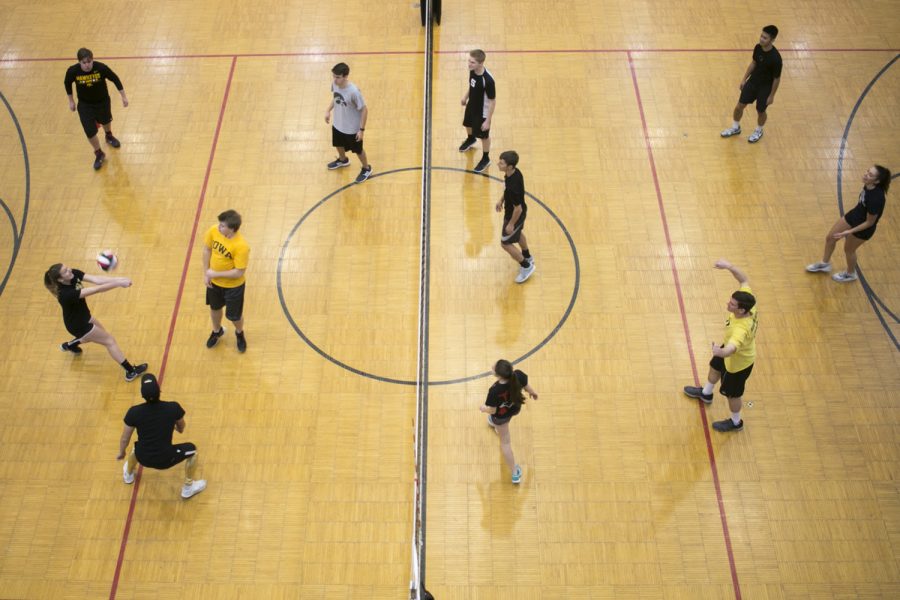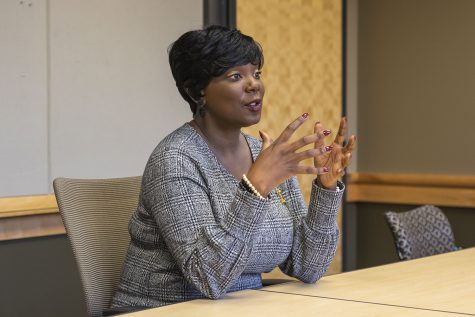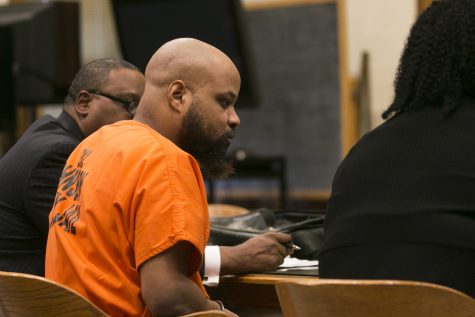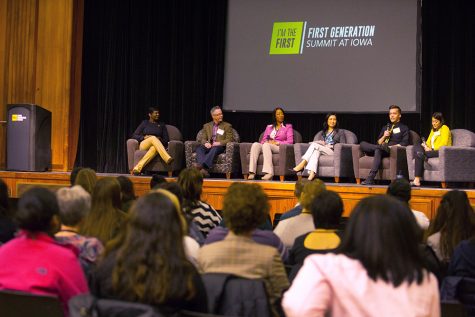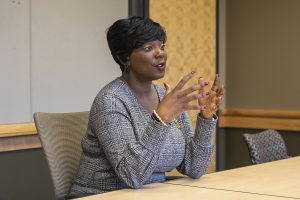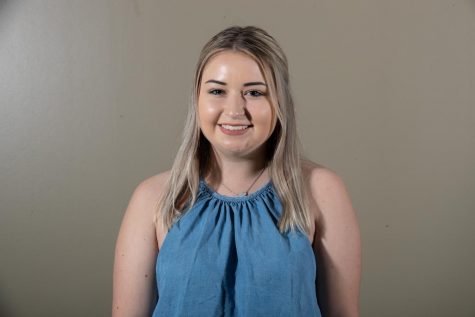Community Outreach Lab hopes to bring clients to promote health in daily lifestyles
The UI Department of Health and Human Physiology opened a community outreach lab to provide health coaching to clients referred by UIHC.
University of Iowa students play a charity game of volleyball in the Field House on Sunday, Dec. 3, 2017.
November 5, 2018
The University of Iowa Health and Human PhysiologyDepartment has recently developed a new Community Outreach Lab, which will treat patients referred from UI Hospitals & Clinics to be examined for their overall health and will use undergraduate student health coaches needing hands-on experience.
Certified health coach and UI Lecturer Alison Reichter oversees the student health coaches and trains them to develop health-coach skills, as well as overseeing the administrative side of the Community Outreach Lab.
“We have partnered with UIHC, and medical providers are aware of our services,” Reichter said. “When a patient is met with in UIHC and meets the criteria of needing health coaching, [the hospital] will refer them to us.”
Reichter said that upon a referral to the lab, a patient must complete an intake form asking for background information and what they hope to get out of the lab and the healthy behaviors they would like to work on.
“A common misconception is that people will come to the outreach lab and be told what to do,” Reichter said. “Our student health coaches are not dietitians, not personal trainers; they are trained in behavioral-change processes. Our coaches are not telling clients what to do. They are helping clients develop goals and reasons for wanting to improve their lives.”
Reichter said relationship development between coach and client, along with set goals, are a large part of the outreach lab. Clients will work with their coach for approximately three months and hope to accomplish goals in that time frame. Common goals could include physical activity, stress management, healthy eating, or weight loss.
The lab was created through “Exercise in Medicine,” a new initiative to treat physical activity as a vital sign — similar to blood pressure or weight. Health and human-physiology Associate Professor Lucas Carr led the effort to bring the program to campus.
“[The initiative] is a global initiative to embed physical activity into the health-care system,” Carr said. “The initiative calls for all health-care providers to ask patients about their physical activity and potentially refer them to a local place, such as a community outreach lab.”
RELATED: UI faculty promoting healthier habits to reduce Iowa’s high obesity rate
Carr said that doctors will rarely ask patients about their physical activity. If they do, there is nowhere really to refer patients outside of a physical therapist, which is not always the kind of care the patient needs.
Health coach students in the lab are required to take a practicum in health coaching to learn what health coaching is, Carr said.
UI senior and health-coach student Moriah Stickley said the experience she has received from working in the Community Outreach Lab will help further her career in human physiology.
“It is really cool to see what I have learned in class and apply it to real-world situations,” she said. “It definitely has made me realize that I enjoy health coaching and want to further my studies in it.”
Stickley said she took an introductory health-coaching course earlier in her academic career, and it helped her tremendously to understand she would enjoy health coaching.
Michaela Hays, another health-coach student, said, “Although it is easy to say, ‘Change your diet, and exercise more,’ the reality is that it is very hard to create change on your own. The supportive and collaborative relationships formed between coach and client will create forward movement — and that’s something rewarding to be a part of.”



